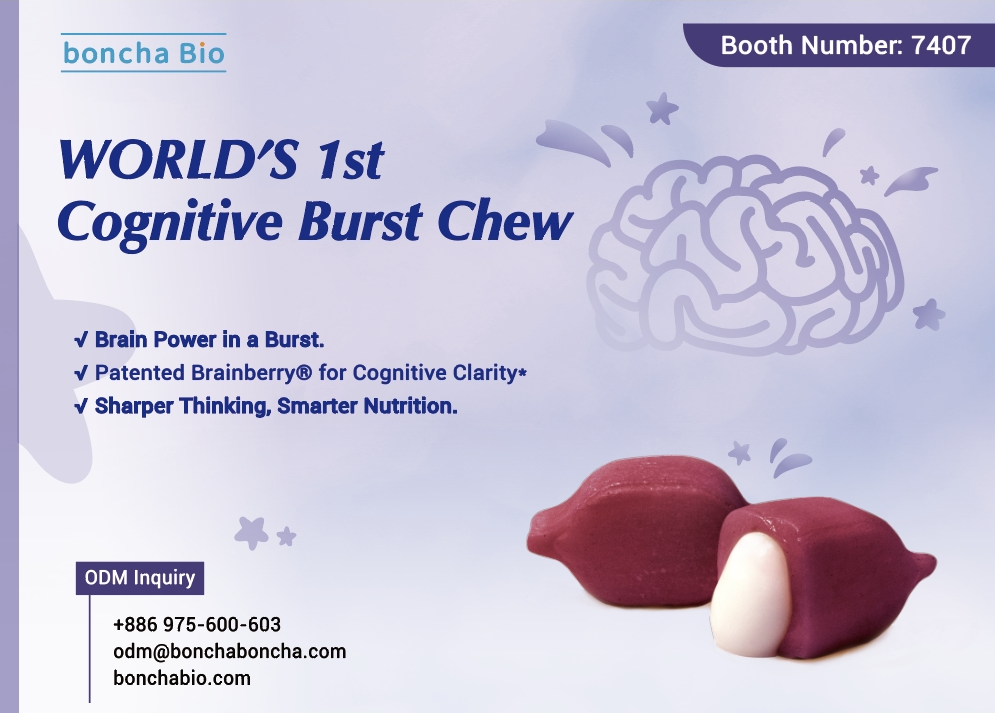By 3 PM, You're Not Even the Same Person
Ever experience this? Morning starts with back-to-back video calls. You finally open your emails, but somehow you need to read each one twice before it clicks. Come 3 PM, you're staring at a simple Excel spreadsheet—numbers that should make perfect sense—and your brain just... won't. Then 5 PM rolls around and you realize you've been staring at your screen for an hour straight. Accomplished? Absolutely nothing.
If this sounds familiar, you're far from alone. Stanford University's Virtual Human Interaction Lab actually studied this. Turns out, all that video conferencing and digital work creates what they call "Zoom Fatigue"—and it hits you on five different levels: general fatigue, social fatigue, emotional fatigue, visual fatigue, and motivational fatigue.
Then there's the "post-lunch dip" that so many of us face. It's this predictable afternoon slump where your alertness and performance just drop. Scientists think it's tied to our circadian rhythms. Interestingly, even if you skip lunch entirely or just have a liquid meal with the same calories, you still get hit with it. So that foggy feeling around 3 PM? That's your body doing its normal thing.
Quick Navigation
Why Does Your Brain Actually "Crash"? Here Are Four Science-Backed Reasons
1. Your Brain's Running on Empty:
Get this: your brain is only 2% of your body weight, but it burns through about 20% of all your energy. When you're coding for hours, analyzing data, or sitting through meeting after meeting, your brain's energy needs just keep climbing. When it can't get enough fuel, your neurons start slowing down. That's when you feel it—slower reactions, trouble focusing.
It's basically like when your phone hits 5% battery. The system automatically throttles performance. Your brain does the exact same thing, shifting into "power-saving mode" to tell you it's time for a break.
2. Your Neural Signals Start Lagging:
Think of your brain like a giant Wi-Fi network where neurons are constantly sending messages back and forth. How fast those signals move depends on how fluid your neuronal cell membranes are—kind of like how water flows better through smooth, clean pipes.
When you work your brain hard for too long, those membranes get less fluid. Signals slow down. You end up with that "thinking through molasses" feeling and those annoying memory blanks. Here's something interesting: DHA (a type of omega-3 fat) makes up about 90% of the polyunsaturated fats in your brain—that's 10–20% of your brain's total fat content. It's especially concentrated in your gray matter and where your neurons connect.
3. You're Burning Through Your Brain Chemicals:
Everything from your focus to your emotional balance to your memory depends on these brain chemicals called neurotransmitters:
- Dopamine: drives your focus and motivation
- Serotonin: keeps your mood stable
- GABA: helps you relax and stay calm
- Acetylcholine: powers your memory and learning
Making these chemicals requires raw materials—and that's where B vitamins come in. Take vitamin B6, for example. Your body needs it to make dopamine, serotonin, and GABA. Work long enough without replenishing these building blocks, and you run low on neurotransmitters. That's when you feel mentally drained and can't find the motivation.
4. Oxidative Stress Builds Up and Your Brain Gets Inflamed:
Your brain uses more oxygen than any other organ in your body. All that oxygen consumption? It creates free radicals—basically stress molecules. These free radicals go after your neurons, trigger inflammation, and create that awful brain fog feeling.
But here's some good news: studies show that anthocyanins have serious antioxidant power. They protect your brain from this oxidative stress and actually help improve blood flow to your brain.
References: PMC124895, SCIAM, PMC4772061, PMC3917688, NIH: Vitamin B6, Micronutrient: Vitamin B6, Fruit Juice Science Center
Who Else Gets Hit with These "Brain Crashes"?
It's not just knowledge workers. Lots of different people face this same cognitive fatigue—brain crashes, slower reactions, trouble concentrating. And they can all benefit from the same strategies.
| Who's Affected | What They're Dealing With | What Research Shows |
|---|---|---|
| Shift/Night Workers (nurses, factory workers, call center staff) |
Their body clocks are all messed up, they're sleep deprived → attention drops, reactions slow down; those long overnight shifts really hurt performance | CDC/NIOSH found clear links between shift work and performance problems. Night shifts wear you down, which is why these folks especially need good nutrition and lifestyle support to push back. PMC4629843, PMC16416332 |
| Precision Work Professionals (designers, video editors, engineers, gamers) |
They need rock-solid hand-eye coordination and quick reflexes. All that intense screen time and mental work? Recipe for brain crashes. | EJN 2024 (young adults): just 1 week of AME supplements boosted attention and speed, plus raised BDNF levels. Nutrients 2020: after 24 weeks of AME, hand-eye coordination improved—visible changes starting at week 6. SpringerLink, PMC 32824483 |
| Students/Exam Crammers & Heavy Learners | Long study marathons + all-over-the-place sleep schedules → their attention, memory, and decision-making all take hits | NIA research shows sleep and thinking skills are deeply connected (attention, memory, making decisions). NIH says B6 helps make dopamine, serotonin, and GABA, while B1 keeps your brain energized. CDC: Sleep |
| 40+ Folks Wanting to Stay Sharp (experienced professionals, mature knowledge workers) |
As we age, keeping our brain sharp matters—reactions slow down a bit, memory isn't quite what it was | WHO says about 57 million people worldwide are living with dementia (2021 numbers). EFSA found that DHA helps keep your brain working normally (label claim requires: 250 mg DHA daily or 250 mg EPA+DHA combined). PMC11719789, WHO, NIH: Cognitive Health |
Caffeine Isn't the Answer: Quick Fix ≠ Real Fix
Caffeine wakes you up by blocking adenosine receptors in your brain. But the problem is: your body builds tolerance, and if you drink it too late, it messes with your sleep and recovery. The EFSA risk assessment says 200 mg or less per serving is generally safe for adults (though not before bed). Keep your daily total under 400 mg. Pregnant women and teens have different limits.
Caffeine vs. Cognitive Nutrition: Let's Compare
| Aspects | Caffeine | Cognitive Nutrition |
|---|---|---|
| How It Works | Blocks those sleepy signals → temporary wake-up PMC5445139 | Long-term support for blood flow, how your brain uses energy, fighting oxidation, keeping cell membranes healthy |
| How Long It Works | Kicks in after 30–60 minutes, lasts a few hours | Depends what you take; studies show anthocyanins help within a week; benefits build up over time PMC11329521 |
| Sleep Impact | Afternoon/evening coffee? Say goodbye to good sleep | Doesn't stimulate you, won't wreck your sleep |
| Safety Limits | Adults: max 200 mg per serving, 400 mg daily (EFSA) | Follows proven clinical and regulatory guidelines for each ingredient |
Simple truth: caffeine is like maxing out your credit card—you get that energy boost now but pay for it later (next-day crash). Real cognitive nutrition is like investing in a savings account. The benefits compound over time, your brain gets stronger, and your resistance to fatigue actually improves.
The Triple-Strategy Solution for Beating Cognitive Fatigue
Want to fix that afternoon brain crash? You need three things working together: solid lifestyle habits, brain-healthy eating, and smart supplementation. Your habits are the foundation. Good food builds on that. Targeted supplements amplify everything.
A | Lifestyle Basics (The Force Multiplier)
| Goal | How to Get There | Why This Works |
|---|---|---|
| Sleep: Your Brain's Home Base | Aim for 7–9 hours every night. Wake up at the same time daily. Skip the afternoon coffee. Dim the lights and ditch screens at night. Get some natural light in the morning. | You need at least 7 hours (CDC/NHLBI). Bright lights at night throw off your body clock; morning light resets it. Sleep experts say avoid caffeine and blue light before bed. Sleep Foundation, Harvard Health |
| Fight The "Post-Lunch Dip" | Grab a quick 10–20 minute power nap early afternoon (just not too close to bedtime). Or crank up your lights from 1:00–3:00 PM (bright and bluish-white works best). | That afternoon dip is a real circadian thing. Quick naps and bright light can push back the sleepiness and sharpen your thinking. PMC 15892914, PMC8215386 |
| Mini-Breaks Keep You Sharp | Every 30–60 minutes, get up for just 2–5 minutes. Walk around, stretch, look at something far away for 20 seconds. Then dive back in. | Those quick breaks cut down fatigue and give you small-to-decent boosts in how well you work and how you feel. Workplace safety experts recommend it for anyone on computers all day. PMC9432722 |
| Move Your Body, Power Your Brain | Get 150–300 minutes of moderate cardio weekly plus strength training at least 2 days. Even starting with 10–20 minute walks counts. | WHO's activity guidelines; studies show that 12 months of regular walking actually grows your hippocampus (memory center) and sharpens memory in older adults. PMC 21282661, CDC: Adult Activity |
| Keep Your Brain Hydrated | Most adults don't drink enough. Aim for daily totals: women ~2.0 L, men ~2.5 L (includes food and drinks); drink more in hot weather and when exercising. | EFSA sets the targets. Studies show most adults come up short. EFBW: Adequate Water Intake, BMC Medicine |
Get the basics right: nail the basics—"Sleep well + move regularly + stay hydrated + take smart breaks." Build your nutrition strategy on top of that solid foundation.
〈Extended reading: Can't Shake Off Insomnia? Your All-Inclusive Guide to Foods and Aids for Better Sleep!〉
〈Extended reading: 30% of Adults Face Insomnia? Sleep Disorder Mechanisms and Nutrition That Helps〉

B | What to Eat for Your Brain
| The Key Nutrient | Why it Helps | Food Sources | Frequency |
|---|---|---|---|
| Anthocyanins | Powerful antioxidants that boost blood flow to your brain and help you perform. Human studies link them to better attention and faster reactions. | Aronia berries, blueberries, blackberries, black currants, purple grapes—about a cup (~150 g). Frozen works great too. | 4–7 days a week |
| B-Complex Vitamins (B₁/B₆/B₉/B₁₂…) | These are your "building blocks" for energy and making brain chemicals. Higher doses of B₆+B₉+B₁₂ in older folks with mild cognitive issues can lower homocysteine and actually slow down brain shrinkage (proven in trials). | Whole grains (brown rice, oats) 1 bowl, legumes (palm-sized), dark leafy greens, 1 egg. B12 mostly comes from animal foods (fish, eggs, dairy) or fortified stuff/supplements. | Every day |
| DHA (from algae or fish) | This essential fat keeps your neuron membranes working smoothly and your synapses firing. Long-term research backs up its "normal brain function" claims. | Fatty fish (salmon, mackerel, sardines) 100–150 g twice a week; or daily algae oil to hit around 250 mg DHA (or 250 mg EPA+DHA total). | Fish 2x weekly or algae oil daily |
Quick note: These aren't the only brain-boosting nutrients out there, but they've got the strongest research backing and work well in everyday eating.
〈Extended reading: Omega-3 Uncovered: Discover Its Benefits, Advantages, and Sources!〉
〈Extended reading: What's Algae Oil? Your Ultimate Omega-3 Source, Especially for Moms & Vegans〉
〈Extended reading: Can Omega-3 Be Taken with Vitamins, Zinc, Magnesium, and Iron?〉
〈Extended reading: Omega-3 Candyceutical White Paper-Technical Insights〉
C. Cognitive Support | What Supplements Can Do
| Period | Nutrition | Typical Dose | Mechanism | References |
|---|---|---|---|---|
| Short-term (1–6 weeks, quick results) |
Standardized Aronia Anthocyanins (like A. melanocarpa with cyanidin-3-galactoside) |
Depends on the product; usually 90–200 mg anthocyanins daily. Most people notice something within 1–2 weeks. | Improves blood vessel function, brain blood flow, fights oxidation. Might boost BDNF for brain flexibility. | PMC11329521, PMC 32824483 |
| Short-term (1–8 weeks) |
L-Tyrosine | 25–150 mg per kg body weight (on empty stomach). Works best when you're really stressed. Less clear for everyday use. | Tyrosine helps make those "fight or flight" chemicals. Improves how you think and feel when stress hits hard. | ScienceDirect |
| Mid-term (metabolic support) |
B-Complex Vitamins (B1, B2, B3, B5, B6, B9/folate, B12) | Most people: get a complete B-complex at RDA levels. If you're vegetarian or older, watch your B12 and folate especially. | Helps make neurotransmitters (dopamine, serotonin, GABA), powers energy creation, builds myelin and DNA. | PMC 21118604, PLOS Journal |
| Mid-term (4–12 weeks) |
Tryptophan | 1–3 g daily | Raises serotonin, balances dopamine. Smooths out mood, cuts anxiety and mental exhaustion, helps you sleep and keeps your brain adaptable. | PMID 19715722, ScienceDirect |
| Mid-term (4–12 weeks) |
Phosphatidylserine (PS) | 100-300 mg daily | Boosts acetylcholine (a key brain chemical), improves membrane health and how neurons connect | Dovepress |
| Long-term (protecting structure) |
Algae Oil DHA (recommended source) | Around 250 mg DHA daily (algae or fish oil); or fatty fish twice weekly (100–150 g each time). | Keeps your neuron membranes fluid so signals flow smoothly. Supports how synapses work and adapt. Long-term structural protection. | JAND, PMC11719789 |
| Optional (specific situations) |
Creatine | 3–5 g daily for about a week. Drink lots of water. If you have kidney problems, talk to a doctor first. | Builds up phosphocreatine stores, which power ATP production when your brain's working overtime. | PMC 16416332, PMC 14561278 |
| L-Theanine | 200–400 mg daily. Often paired with caffeine to smooth out the jitters. | Changes your alpha brain waves. Might balance glutamate and GABA. Affects your brain's rhythm. | JCM 14217710 | |
| Cocoa Flavanols | 200 mg daily (watch sugar/calories; go for high-flavanol cocoa or dark chocolate). | Improves how blood vessels dilate, which helps overall blood flow. | EFSA Journal |
These are reference ranges from research and regulatory standards. Always follow what's on your product label. If you're pregnant, dealing with chronic health issues, or taking medications, check with a healthcare professional first.

Why Boncha Bio's Burst Chew Is the Best Choice for Cognitive Support
Boncha Bio creates next-gen chewable supplements and works with brands to design cognitive formulas that actually taste good and work. We use a multi-pronged approach to build solutions you can feel and stick with over time.
Here's the thing: most actives ingredients are pretty fragile—heat, oxygen, and light can wreck them. Take anthocyanins, for example. Heat and prolonged oxidation break them down fast, killing their effectiveness during production.
That's exactly why we developed Burst Chew dual-layer technology. The inner layer keeps active ingredients protected at low temperatures. The outer layer gives structure and masks any unpleasant tastes. The result? Better compliance and actual bioactivity.
Plus, we can flexibly customize formulas for different groups: shift/night workers, people who need precision and quick reactions, students cramming for exams, and folks 40+ who want to stay sharp.
Boncha Bio's facility has NSF-GMP, Taiwan GMP, ISO, and HACCP certifications—quality you can trust. We're excited to help more people enjoy these cognitive nutrients through innovative chewable tech, keeping your focus and creativity flowing. Ready to connect? Reach out to us.
〈Extended reading: Cognitive Burst Chew〉
〈Extended reading: Candy Capsules vs. Functional Gummies: The Ultimate Guide to Your Wellness Choices〉
〈Extended reading: Harnessing the Power and Efficacy of Functional Candies〉
References: PMC8750456, PMC3792211
FAQ
Q1. What is cognitive fatigue and why does my brain crash in the afternoon?
A: Cognitive fatigue happens when your brain runs out of energy after prolonged mental work. Your brain uses 20% of your body's energy despite being only 2% of body weight, leading to that 3 PM crash when fuel runs low.
Q2. How does DHA support normal brain function?
A: DHA makes up about 90% of polyunsaturated fats in your brain. It keeps neuronal membranes fluid so signals transmit smoothly between neurons, supporting normal brain function at 250 mg daily.
Q3. Why does caffeine stop working as well over time?
A: Caffeine blocks adenosine receptors temporarily but your body builds tolerance quickly. It works for 30-60 minutes but doesn't address the root causes—energy depletion, neurotransmitter loss, or oxidative stress.
Q4. What nutrients help reduce cognitive fatigue most effectively?
A: Three key nutrients work together: anthocyanins (90-200 mg daily) show improvements in 1-6 weeks; B-complex vitamins fuel neurotransmitter production; DHA (250 mg daily) maintains membrane health long-term.
Q5. How do B-complex vitamins fight brain fog?
A: B-complex vitamins are raw materials for making neurotransmitters—B6 creates dopamine, serotonin, and GABA. When you work long hours without replenishing these building blocks, neurotransmitter levels drop and brain fog sets in.
Q6. Who else besides office workers faces cognitive fatigue?
A: Cognitive fatigue affects shift/night workers with disrupted sleep, precision professionals needing quick reactions, students with irregular schedules, and adults 40+ maintaining brain health. Each group benefits from the same nutritional strategies.
Q7. Can lifestyle changes alone fix afternoon brain crashes?
A: Lifestyle basics (7-9 hours sleep, regular movement, hydration, micro-breaks) form your foundation. Layer nutritional support on top—anthocyanins for quick wins, B-vitamins for building blocks, DHA for long-term protection—to maximize results.
Q8. Why choose Boncha Bio's Burst Chew for cognitive support?
A: Boncha Bio's proprietary Burst Chew dual-layer technology protects fragile actives like anthocyanins from heat and oxidation during production. The inner layer preserves ingredients at low temps while the outer layer masks taste, ensuring actual bioactivity matches label claims.
.jpg)


